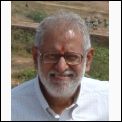O HO is here, and merry cheers to all the successful entrepreneurs and their brokers.
What is O HO? Outsourcing of human organs! It's here in India, and that is, well, almost official. And that's a sign that India is going to become rich!
Who doesn't want India to be rich? We all do, don't we? The poor want to be less poor, the middle class to climb a rung up the ladder, the rich want to become super-rich, the wealthy to become super wealthy, and so on, in quest of getting into lists that name the rarest of the rare and rank them in plutocratic order.
Why do foreign manufacturers come to India? Because India is poor and there are vast numbers of workers available here practically dirt-cheap, and foreign investors can make vast profits when they operate here, than if they stayed home to do their business, or ventured into countries that are not poor.
Ah, there you have the paradox, India has a chance of getting rich as mentioned above, precisely because we are riddled by continuing poverty, growing worse as population and illiteracy scale by the day higher and higher reaches.
Not only human labour, but human bodies too are cheap to buy here in India Think of a farmer burdened by overwhelming debt, or a fisherman whose earnings catapult perilously below unable to complete with foreign trawlers hauling in their loot in Indian waters. The noose, a bottle of pesticide, a quick jump on the path of a rushing train. Such solutions have been taken by many.
But better ones are at hand, according to the spate of recent reports, starting with the horrors of Nithari, nestling next to NOIDA, neighbouring our national capital, where the rich and powerful comfortably reside in palatial comfort.
At Nithari, young children were lured into a rich home and slaughtered for the sport and gain of the rich. But in many parts elsewhere in India, and maybe in the Nithari case too, financiers and organ-brokers network with select hospitals, to get poor people to part with their kidneys for promised payment of about Rs. 40,000 per kidney -- and even that amount is seldom paid. But the kidneys the poor have surgically been operated upon to part with are sold each for Rs. 40 lakhs each according to one estimate. Considering the vast number of cases of unvoluntary donors come to light so far, and the unnumbered many more that lie hidden, like the iceberg's mass beneath its visible tip, here we have probably the biggest success story yet to unfold for India, thanks to the tide of globalisation.
Money flows from rich countries into India, and if our population, particularly poor population, declines, what can be better for one and all?
The old story says that it rains alike on the rich and the poor, but more on the poor, because the rich have a smooth way of expropriating the poor's umbrellas. Now, not just umbrellas, but vital human organs as well, as the rain of wealth is prayed for by our nation.
Think.



